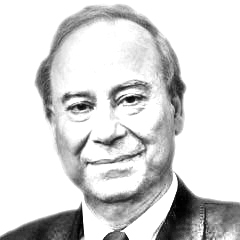
Abdul Wahid Pedersen is a prominent Danish imam based in Copenhagen who has played an important role in the development of Islam in Denmark. He was the first imam in the country to conduct the Friday prayer in the Danish language and the idea of giving the sermon in Danish was the impetus for the formation of Copenhagen’s Danish Islamic Center, which was, when I interviewed him during fieldwork for my project Journey into Europe on Islam in Europe, the only mosque giving the sermon in Danish. ‘We realised we had a problem,’ Pedersen said of the reasons for starting the Danish Islamic Center in 1997, explaining that converts and immigrant Muslims such as Pakistanis, Arabs, and Somalis, were all speaking in different languages. By giving the sermon in Danish, Pedersen was uniting a diverse and segregated Muslim community.
Like other European converts, Pedersen can be thought of as a living bridge between Islam and Europe. He remains proud of his Danish identity and feels it is fully compatible with Islam
We met Pedersen in the Copenhagen headquarters of the global charity organization Danish Muslim Aid, which he co-founded and currently heads. Danish Muslim Aid not only helps Muslims around the world, such as those in war-torn Syria, but also has projects to help non-Muslims in the Muslim world, such as Christians and Hindus in Pakistan.
Like other European converts, Pedersen can be thought of as a living bridge between Islam and Europe. He remains proud of his Danish identity and feels it is fully compatible with Islam, “for me, being a Dane and being a Muslim is just expressing Islam in a Danish way of living.”
As a Dane, Pedersen feels particularly connected to his Viking roots. He showed us the artwork of his daughter, who painted a calligraphy of the Arabic Bismillah, ar-Rahman, ar-Rahim in the shape of a Viking ship. “My father was an artist, my daughter is an artist, and they have their different styles. She’s doing this kind of calligraphy, and here of course putting it into the shape of a Viking ship. We’ve got the combination of the Danishness and Islam, because the Viking ship is very much Danish.”
I found Pedersen’s conversion story fascinating. Describing himself as ‘an ordinary hillbilly in Denmark,’ Pedersen set out in search of God and eventually found himself in India where he converted to Hinduism. ‘As a Hindu,’ he recounted, “I found myself a guru and abandoned most of my material belongings walking barefoot in self-made clothes and without money in my pocket and with no return-ticket back to Denmark in my pocket, seeking deeper into Hinduism and myself. Eventually after a year and a half — possibly more — of this, I made it back to Europe and returned to Denmark as a Hindu. I actually came back to Europe without shoes, when I arrived from India.”
Pedersen converted to Islam in 1982, two years after leaving the Hindu faith. He recounts the moment when his spiritual search entered a new chapter. It occurred when he wanted to drink water from a stream, and the only way he could drink the water was to reach for it prostrate, so he lay down to drink it. At that moment, with the moon on the mountains, he realized that “God wanted me to lie flat in front of him. It struck me with such a force that night on the mountain that 30 years later I can still recall the awe I felt.” He did note, “It would, nevertheless, take another few years, before my brain and heart fully understood this message, and I surrendered to Allah.”
Becoming a Muslim felt like a homecoming for Pedersen: “Islam is everything for me now. I finally got home, when I entered Islam. My search was over.” Speaking about challenges facing the Muslim community in Denmark, Pedersen criticised the lack of domestic schools to train imams. This leads to a reliance on imported imams, who know the text, but cannot contextualise the knowledge for Danish Muslims.
Pedersen also cited a ‘lack of unity’ as an additional challenge. “Muslims in Denmark are, by and large, made up of immigrant communities. Many of them try to consolidate within their own traditions of origin. Pakistanis have become more Pakistani, Moroccans becoming more Moroccan, Turkish becoming more Turkish.” There are Muslim “people who are becoming frustrated, agitated, even opposed to Danish society.” Muslim immigrants, he said, particularly the second-generation, feel like they are Danes, but the Danes often say that they are not Danes.He also cited some of the public initiatives taken by Danish authorities that have caused Muslims to feel they are under siege.
A definite bright spot in the Danish Muslim community are the women, Pedersen noted. He himself has three daughters and two grandchildren, and he said that Muslim women, who he called ‘brilliant,’ are ‘winning.’
Pedersen believes that we are at a ‘unique moment in history’ with respect to Islam in Europe. Speaking at an interfaith dialogue conference in London some years ago, he drew on his Viking heritage to charta course for the future: “My ancestors, the Vikings, used to be well-known for crossing the oceans, going abroad, knocking on doors everywhere. Now modern-day Muslims in Denmark have to become good sailors because we have a headwind coming on. We have to learn how to sail up against the wind, and that’s actually not so bad because when you know how to navigate your little vessel in a strong wind, then you will become a skilled sailor.”
The writer is an author, poet, filmmaker, playwright, and is the Ibn Khaldun Chair of Islamic Studies, American University in Washington, DC. He formerly served as the Pakistani High Commissioner to the UK and Ireland. He tweets @AskAkbar
Published in Daily Times, July 29th , 2017.
